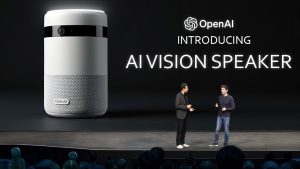
What Artificial Intelligence Cannot Do
Artificial Intelligence (AI) is rapidly transforming industries and our daily lives. From self-driving cars to intelligent personal assistants, AI is becoming increasingly integrated into our world. However, despite its impressive capabilities, there are still several areas where AI falls short. In this blog, we will explore what Artificial Intelligence cannot do and why these limitations exist.
1. Understanding and Processing Emotions
One of the most significant limitations of AI is its inability to truly understand and process human emotions. While AI can be programmed to recognize facial expressions and tone of voice, it does not genuinely comprehend the underlying emotions. This lack of emotional intelligence means that AI cannot:
- Provide empathetic support in customer service
- Understand complex emotional nuances in human interactions
- Build genuine human relationships
For instance, an AI-powered chatbot might recognize that a customer is frustrated based on their tone but cannot genuinely empathize with their situation or offer comfort.
2. Creativity and Innovation
Creativity and innovation are inherently human traits that involve thinking outside the box and making intuitive leaps. While AI can generate content, create music, or even write poetry, it does so based on patterns and data it has been trained on. AI lacks the ability to:
- Originate new ideas or concepts without prior data
- Understand the cultural and emotional context behind creative works
- Make artistic decisions driven by personal experiences or emotions
For example, AI-generated art may mimic the styles of famous artists, but it cannot innovate or bring a unique perspective as a human artist can.
3. Moral and Ethical Decision-Making
AI operates based on algorithms and data, lacking the moral compass and ethical considerations that guide human decisions. While AI can assist in decision-making processes, it cannot:
- Understand the moral implications of its actions
- Make ethical decisions in complex, ambiguous situations
- Weigh human values and societal norms appropriately
Consider autonomous vehicles: while AI can follow traffic laws, it cannot make ethical decisions in scenarios where those laws conflict, such as deciding between harming passengers or pedestrians in unavoidable accidents.
4. Common Sense and Contextual Understanding
Common sense is the basic level of practical knowledge and reasoning that humans take for granted. AI, on the other hand, struggles with tasks that require common sense and contextual understanding. AI often fails to:
- Understand jokes, sarcasm, and idiomatic expressions
- Make sense of situations that lack clear data
- Adapt to new, unfamiliar contexts without extensive retraining
For example, a human can understand that "It's raining cats and dogs" is an idiom for heavy rain, while AI might interpret it literally without proper contextual training.
5. Physical and Manual Tasks
Despite advances in robotics, AI still struggles with tasks that require fine motor skills and adaptability to unpredictable environments. AI cannot effectively perform:
- Complex surgical procedures without human oversight
- Intricate craftsmanship or art restoration
- Tasks that require manual dexterity and real-time adaptation
For instance, while robots can assemble cars, they lack the nuanced touch required for delicate tasks like handmade jewelry or detailed repairs.
6. Long-Term Strategic Thinking
AI excels in processing large amounts of data and making short-term decisions based on that data. However, it falls short in long-term strategic thinking that involves foresight, experience, and intuition. AI struggles to:
- Develop long-term business strategies with minimal data
- Anticipate and adapt to future societal changes
- Engage in strategic planning that requires understanding human psychology
For example, while AI can optimize supply chains, it cannot foresee long-term market trends and adapt strategies accordingly without substantial data input.
7. Understanding and Generating Humor
Humor is a complex aspect of human communication that often relies on cultural context, wordplay, and timing. AI's attempts at humor often fall flat because it cannot:
- Comprehend cultural nuances and inside jokes
- Understand and create puns or wordplay
- Deliver jokes with appropriate timing and context
For instance, while an AI might generate a joke, it often misses the subtlety and context that make humor effective and enjoyable for humans.
Conclusion
While Artificial Intelligence continues to advance and reshape our world, it is important to recognize its limitations. Understanding what AI cannot do helps us appreciate the unique capabilities of human intelligence and guides us in integrating AI responsibly into society.
For further reading on AI limitations and advancements, check out these resources:








